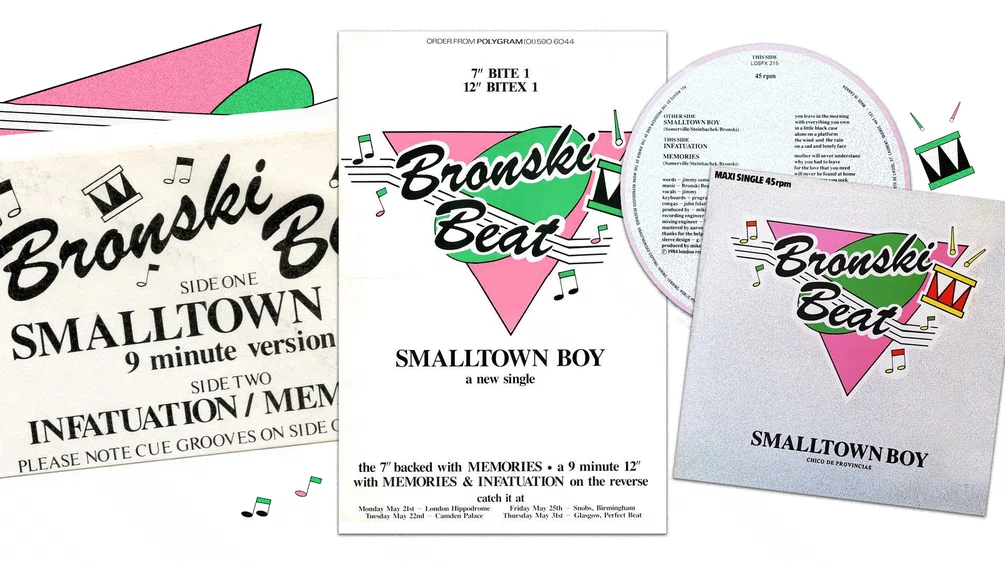
How Bronski Beat’s ‘Smalltown Boy’ became an enduring anthem of queer liberation
The real test for this emotive post-disco classic would come from the clubs, so Bell’s team took the single’s first pressed acetate straight from the cutting machine and into the heart of London’s gay club scene, Heaven. It was pioneering hi-NRG DJ, Ian Levine, who gave the track that fateful first spin during his longstanding residency at the venue and, after bringing the house to a frenzy with his first play, “he did something he never does,” Bell recalls. “He denies that he ever did it, but I know because I was there – he played it twice.”
The song was officially released on 25th May 1984. Eschewing the fateful ban of ‘Relax’, things picked up quickly on the radio thanks to support from Radio 1’s Peter Powell and Manchester’s Oxford Road Show. The boys would also grace the hallowed stage of Top Of The Pops, delivering their unapologetic ode to chosen family to TV sets across the country at prime time. In the month after its release, the single shot from No. 35 in the charts right up to No.3, cresting just behind Wham! and Frankie Goes To Hollywood in a trio of chart-topping queer excellence. “It just had an effect on people,” says Bell.
Bronski Beat followed the effort with singles ‘Why’ and ‘It Ain’t Necessarily So’. The former focused on themes of homophobic prejudice in another campy video by Rose, in which the trio transformed a Victorian workhouse into a pulsing discotheque, and was dedicated to the memory of murdered gay playwright, Drew Griffiths. It would be their joyous ‘I Feel Love (Medley)’ that saw the trio, finally, go full-on diva. The eponymous Donna Summer classic not only borrows elements of ‘Love To Love You Baby’, but also finds the alluring vocal chops of Soft Cell’s Marc Almond and gay choir, The Pink Singers, suddenly coalescing into a veritable feast of dancefloor ecstasy, a fitting tribute to dancefloor dames that came before.
Stretching across their musical output, Bronski Beat’s beating heart was their keen involvement in political activism. ‘The Age of Consent’ had the number for the London Gay Switchboard scratched into the record’s inner groove; it listed the staggering differences in ages of consent for homosexual acts globally on the inside sleeve. They even went as far to reclaim the inverted pink triangle, used by Nazi’s to identify homosexual men during the holocaust, in its artwork.





